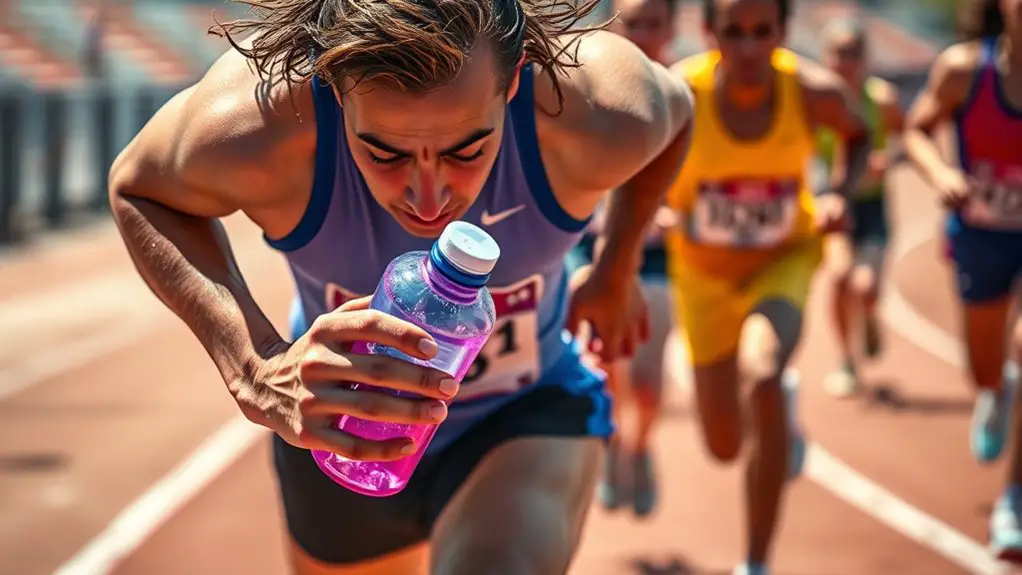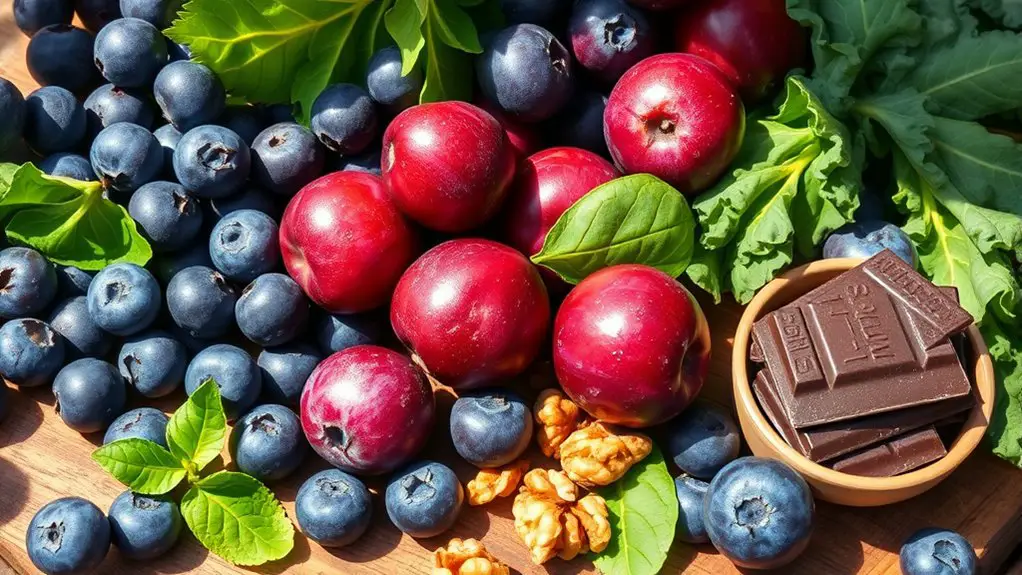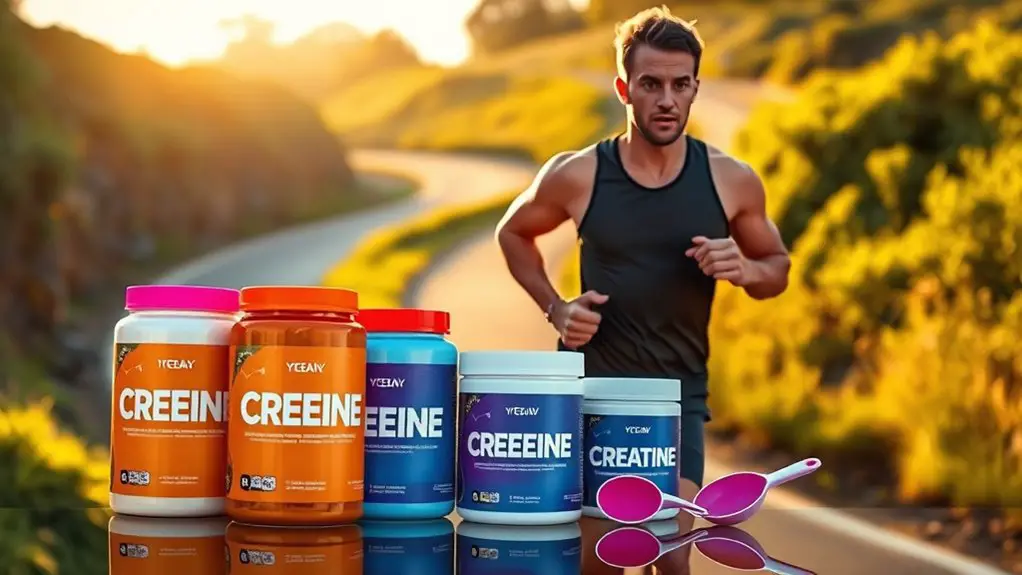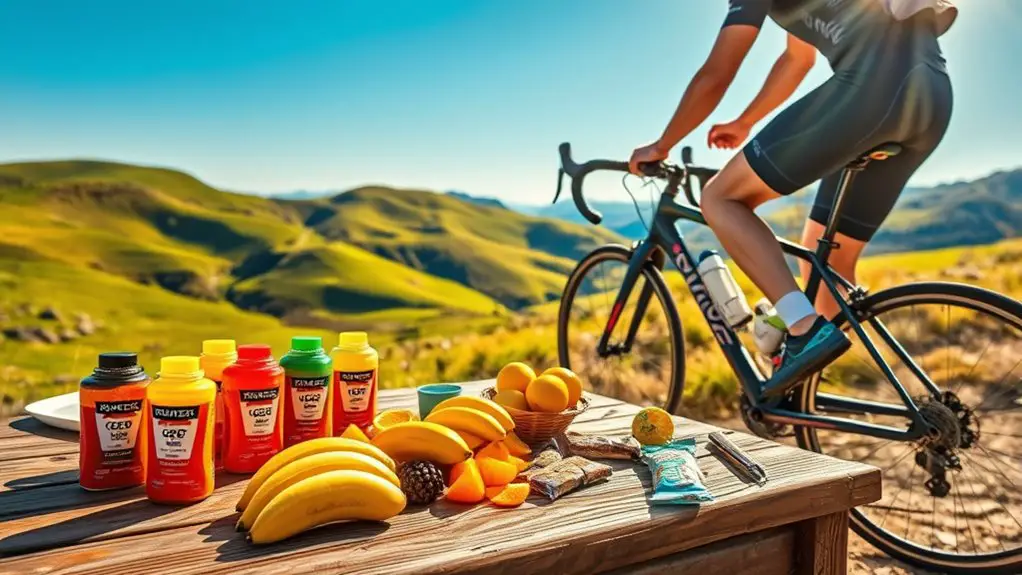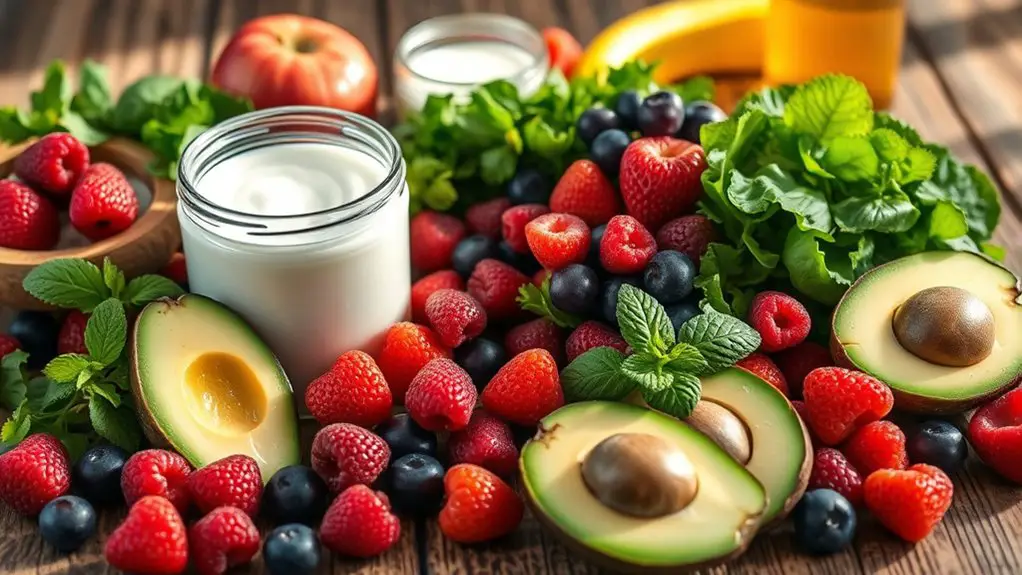Proper hydration's essential for maximizing your athletic performance. Staying hydrated fuels your body and keeps your energy levels steady. Even mild dehydration can decrease endurance and impair focus, making it harder to perform your best. It can also increase your injury risk by straining your muscles and joints. By understanding hydration strategies and listening to your body's signals, you can enhance your performance and recovery. There's so much more to explore about hydration's impact on sports performance.
The Importance of Hydration in Sports
When you engage in sports, staying hydrated isn't just a recommendation; it's essential for peak performance. Water is your best ally, fueling your body and keeping your energy levels high. Whether you're running, cycling, or playing a team sport, proper hydration helps maintain your strength and stamina. You might not realize it, but even mild dehydration can impact your focus and agility, which can limit your freedom to move and perform at your best.
Think about how great it feels to push your limits; that feeling is amplified when you're fully hydrated. It allows you to enjoy the game without the worry of fatigue setting in too soon. So, make it a habit to drink water before, during, and after your activities. Proper hydration helps avoid issues like fatigue and cramps. Listen to your body—it knows when it needs that invigorating boost. Embrace the freedom that comes with proper hydration, and you'll notice the difference in your performance.
How Dehydration Affects Athletic Performance
Even mild dehydration can greatly hinder your athletic performance, as it affects both your physical and mental capabilities. When you're not properly hydrated, you may find yourself struggling to maintain your edge. This can be especially frustrating when you're aiming for greatness. Here's what dehydration can do to you:
Mild dehydration can hinder your performance, impacting both body and mind when you need to excel.
- Decreased Endurance: You'll tire quicker, making it harder to push through those intense moments when you need to shine.
- Impaired Focus: Your mind starts to wander, affecting your decision-making and reaction time, leaving you vulnerable on the field or court.
- Increased Injury Risk: Without adequate hydration, your muscles and joints can suffer, leading to painful injuries that could sideline you. Additionally, proper hydration can maintain energy levels, which is crucial for sustaining performance throughout your activity.
Don't let dehydration steal your freedom to perform at your best. Stay hydrated, and keep chasing those goals with the passion and energy you deserve!
Recognizing the Signs of Dehydration
Recognizing the signs of dehydration is essential for maintaining peak performance during any athletic endeavor. When you're out there pushing your limits, it's vital to pay attention to your body. Thirst is the first signal—if you notice you're craving water, don't ignore it! Fatigue and dizziness can sneak up on you, making it hard to focus or keep your energy up. Dry mouth, dark urine, and headaches are also red flags that you need to hydrate.
Even minor symptoms can impact your performance, so stay vigilant. If you start feeling sluggish or your muscles cramp, it's time to take action. Listen to your body—it knows what it needs. Staying in tune with these signs empowers you to make informed decisions about your hydration, allowing you to enjoy your activities without unwanted setbacks. Remember, freedom on the field starts with being aware of how your body feels! Additionally, maintaining proper electrolyte balance is crucial for preventing muscle cramps and optimizing your athletic performance.
The Role of Electrolytes in Hydration
While staying hydrated is essential, it's equally important to understand the role electrolytes play in your hydration strategy. These minerals, like sodium, potassium, and magnesium, help maintain your body's balance and guarantee you perform at your best. When you're sweating during workouts, you're not just losing water; you're also losing these vital electrolytes.
Here are three reasons why you should prioritize electrolytes:
- Energy Boost: Proper electrolyte levels help you maintain energy, allowing you to push through those tough workouts without feeling drained.
- Muscle Function: Electrolytes support muscle contractions, reducing the risk of cramps and guaranteeing smooth movement during your activity.
- Hydration Efficiency: They enable your body to absorb and retain water more effectively, so you stay hydrated longer. Additionally, understanding how sweat affects electrolyte levels can help you tailor your hydration strategy for optimal performance.
Hydration Strategies for Before Exercise
To optimize your performance, it's important to focus on hydration strategies before you hit the gym or the field. Start by drinking water throughout the day, aiming for at least 16-20 ounces about two hours prior. Consider incorporating electrolyte-rich beverages to replenish what you'll lose during intense activity.
Here's a quick guide to pre-exercise hydration:
| Time Before Exercise | Recommended Fluid Intake | Tips |
|---|---|---|
| 2-3 hours | 16-20 ounces | Hydrate consistently |
| 30-60 minutes | 8-10 ounces | Choose water or sports drinks |
| 10-15 minutes | 5-7 ounces | Avoid heavy meals |
Staying Hydrated During Workouts
Staying hydrated during workouts is essential for maintaining peak performance and preventing fatigue. When you're in the zone, feeling that freedom to push your limits, the last thing you want is dehydration slowing you down. Here are a few tips to keep your energy flowing:
- Sip Water Regularly: Don't wait until you're thirsty. Make it a habit to take small sips throughout your workout to stay ahead of dehydration.
- Electrolyte Balance: For intense sessions, consider drinks with electrolytes. They can help you maintain stamina and prevent that dreaded muscle cramping.
- Listen to Your Body: Pay attention to signs of fatigue or dizziness. Ignoring these can derail your workout and your freedom to perform at your best. Additionally, be aware that overexertion in outdoor activities can lead to rapid dehydration, so pace yourself accordingly.
Recovery and Hydration Post-Exercise
After your workout, rehydration is essential for recovery. You need to restore your electrolyte balance and time your hydration right for ideal results. Maintaining fluid levels is crucial for supporting overall health and performance during the recovery phase. Let's explore how these factors can enhance your post-exercise recovery.
Importance of Rehydration
Although intense exercise can boost your performance, it also leads to significant fluid loss, making rehydration crucial for recovery. When you've pushed your limits, giving your body the freedom to recover is essential. Rehydrating properly helps you bounce back, regain energy, and feel alive again. Consider these reasons to prioritize rehydration:
- Restores Balance: You've worked hard; replenishing fluids helps restore your body's natural balance.
- Enhances Recovery: Staying hydrated accelerates muscle recovery, letting you get back to doing what you love faster.
- Boosts Mood: Feeling refreshed and revitalized can elevate your spirits and keep you motivated for your next challenge.
Trust that by rehydrating, you're giving yourself the gift of freedom to perform at your best.
Electrolyte Balance Restoration
Once you've pushed your body to its limits, restoring electrolyte balance becomes essential for effective recovery. Electrolytes like sodium, potassium, and magnesium are vital for muscle function and hydration. Replenishing these minerals not only helps in recovery but also boosts your performance in future workouts.
Here's a quick overview of common electrolytes and their functions:
| Electrolyte | Function | Sources |
|---|---|---|
| Sodium | Regulates fluid balance | Salt, sports drinks |
| Potassium | Muscle contraction | Bananas, potatoes |
| Magnesium | Energy production | Nuts, leafy greens |
| Calcium | Bone health | Dairy, fortified alternatives |
| Chloride | Maintains acid-base balance | Table salt, tomatoes |
Timing for Optimal Recovery
To maximize recovery and hydration post-exercise, it's important to pay attention to timing. You don't just want to quench your thirst; you want to feel revitalized and ready for your next adventure. Here's how to make it happen:
- Rehydrate within 30 minutes: Your body craves fluids right after a workout. Giving it what it needs early can set the stage for faster recovery.
- Incorporate electrolytes: Timing isn't just about water. Adding electrolytes within the first hour can help restore balance and energy levels.
- Plan for a nutritious meal: Aim to eat a balanced meal within two hours. This fuels your body, aiding muscle repair and ensuring you're ready for your next challenge.
Embrace the freedom of feeling your best!
Hydration Myths in the Sports Community
Why do so many athletes cling to hydration myths that can hinder their performance? One common misconception is that drinking excessive amounts of water guarantees peak performance. In reality, overhydration can lead to hyponatremia, a dangerous condition caused by diluted electrolytes. Another myth is that sports drinks are always necessary. While they can be beneficial during intense exercise, many athletes don't need them for shorter workouts. Sticking to plain water might be enough for most. Plus, some believe that thirst isn't a reliable indicator of hydration. In truth, your body has a natural way of signaling when it needs fluids. It's crucial to listen to your body rather than blindly following outdated advice. Understanding these myths can empower you to make informed hydration choices that enhance your freedom and performance. Don't let misinformation hold you back; embrace the knowledge that will keep you hydrated and ready to excel!
Practical Tips for Optimal Hydration
Although staying properly hydrated is essential for peak sports performance, many athletes struggle with knowing how much and when to drink. To access your potential and feel free during your activities, consider these practical tips for ideal hydration:
Staying hydrated is crucial for optimal performance; many athletes find it challenging to determine their hydration needs.
- Start Early: Drink water consistently throughout the day. Don't wait until you're thirsty; make hydration a habit.
- Monitor Your Urine: Aim for light yellow urine. Darker colors can indicate dehydration, so adjust your intake accordingly.
- Hydrate Smartly During Exercise: For workouts over an hour, consider electrolyte-replenishing drinks. They help maintain energy and keep you feeling vibrant.
Frequently Asked Questions
How Much Water Should I Drink Daily for Optimal Performance?
You should aim for about half your body weight in ounces of water daily. Listen to your body, and adjust based on activity level and climate—staying hydrated is key to feeling your best and performing well.
Can Hydration Affect Mental Focus During Sports?
Absolutely, hydration can sharpen your mental focus during sports. When you're well-hydrated, your brain functions better, enhancing concentration and reaction times. Staying on top of your fluid intake helps you stay sharp and perform your best.
Does Caffeine Impact Hydration Levels in Athletes?
Caffeine can actually lead to increased urine output, which might affect hydration levels. However, for many athletes, moderate caffeine intake doesn't greatly hinder hydration or performance. It's all about finding that right balance for you.
Are Sports Drinks Better Than Water for Hydration?
You know what they say: "You can't pour from an empty cup." Sports drinks can offer electrolytes for quick replenishment, but for everyday hydration, water's often your best bet. Balance is key, so know your needs!
How Does Weather Affect Hydration Needs in Athletes?
Weather greatly impacts your hydration needs. In hot, humid conditions, you'll lose more fluids through sweat, so you'll need to drink more. Conversely, cooler weather might reduce your thirst, but hydration's still essential for performance.
